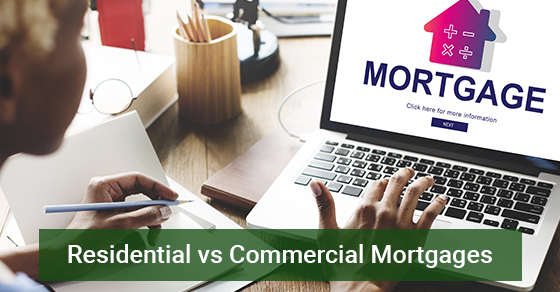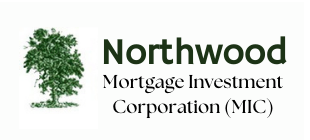When it comes to mortgages, the usual scenario is that a residential property owner wants to buy a commercial property and thinks that the same mortgage rules and criteria apply. But this isn’t the case. Financing for a commercial property is very different from financing for a residential property. This is because the rules are different and for the most part you are dealing with a different set of lenders. In this article, we are going to look at the differences between residential and commercial mortgages.
Residential vs Commerical Mortgages
A key difference between being accepted for a commercial mortgage as opposed to residential is that your personal income is usually not a consideration. A bank or commercial mortgage lender usually takes a business perspective and believes that personal income is not a factor. Lenders believe that the property bought from a commercial mortgage should generate enough income to cover repayments of the loan.
>Having said this, a lender will take in all pieces of information as they assess you for a loan. They will probably want to look at the big picture. The lender will also want information about the property, such as age, condition, location, purpose, suitability for your business plan. The mortgage provider will want to know that you at least have some income to cover payments if the commercial property does not provide enough income.
Processing Times for Commercial Mortgages
It can usually take a bank or lender up to six weeks to process a commercial mortgage application. Sometimes commercial mortgages can take six weeks to complete. In comparison, when it comes to residential mortgages an application can be processed within a few weeks. You should not write a purchase offer with less than four weeks of financing unless you are paying cash without any financing. It is unusual for a deal to be processed any faster than this.
Down Payments for Commercial Mortgages
When you are thinking about mortgages for commercial properties, a lender will usually expect you to be able to make a higher down payment, compared to a residential property. If you are buying property to rent out, a lender will usually fund about 75% on a multi-family dwelling. The funding figure is the same for some other types of commercial properties, including office/retail properties and some office or retail properties. A bank or lender will normally provide 65% of the funding on an industrial warehouse and other commercial properties.
Interest Rates for Commercial Mortgages
When you look to borrow to buy a commercial property, the interest rates are usually higher than when you take out a mortgage on a residential property. The reason for this is that banks or lenders usually think that there is a higher risk of a default on a commercial property.
Costs for Commercial vs Residential Mortgages
>The process for obtaining a commercial mortgage will be higher than with a residential mortgage. This is because commercial mortgage lenders will usually want further paperwork, such as an environmental report — usually Phase 1 — and a building condition report. An environmental report will cost around $2000 while a commercial appraisal may cost up to $3000. The costings and process also explain in part why it takes longer to process commercial mortgages; it can take weeks for these reports to be completed.
If you decide to apply for a commercial mortgage, it’s important to note that if you use a broker they will charge a fee. With residential mortgages, on the other hand, a broker receives a commission or percentage from the lender. Finally, you will also be responsible for your legal fees.
To learn more about commercial and residential mortgages, call Northwood Mortgages at 888-495-4825 or contact us here.






































